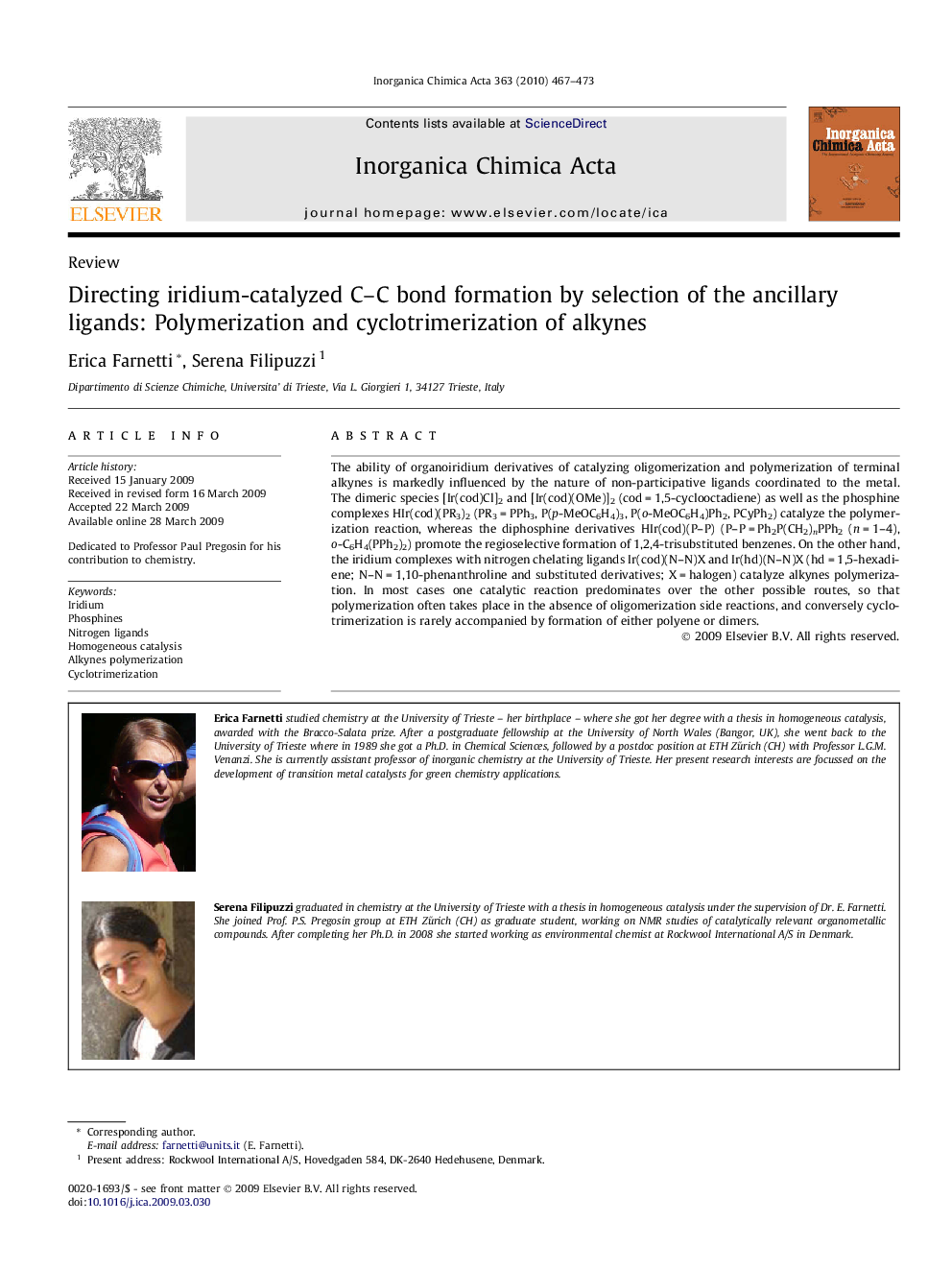| Article ID | Journal | Published Year | Pages | File Type |
|---|---|---|---|---|
| 1312639 | Inorganica Chimica Acta | 2010 | 7 Pages |
The ability of organoiridium derivatives of catalyzing oligomerization and polymerization of terminal alkynes is markedly influenced by the nature of non-participative ligands coordinated to the metal. The dimeric species [Ir(cod)Cl]2 and [Ir(cod)(OMe)]2 (cod = 1,5-cyclooctadiene) as well as the phosphine complexes HIr(cod)(PR3)2 (PR3 = PPh3, P(p-MeOC6H4)3, P(o-MeOC6H4)Ph2, PCyPh2) catalyze the polymerization reaction, whereas the diphosphine derivatives HIr(cod)(P–P) (P–P = Ph2P(CH2)nPPh2 (n = 1–4), o-C6H4(PPh2)2) promote the regioselective formation of 1,2,4-trisubstituted benzenes. On the other hand, the iridium complexes with nitrogen chelating ligands Ir(cod)(N–N)X and Ir(hd)(N–N)X (hd = 1,5-hexadiene; N–N = 1,10-phenanthroline and substituted derivatives; X = halogen) catalyze alkynes polymerization. In most cases one catalytic reaction predominates over the other possible routes, so that polymerization often takes place in the absence of oligomerization side reactions, and conversely cyclotrimerization is rarely accompanied by formation of either polyene or dimers.
Graphical abstractOrganoiridium derivatives are effective homogeneous catalysts for polymerization and oligomerization of terminal acetylenes. By appropriate choice of the ancillary ligands as well as of the experimental conditions it is possible to favour one specific catalytic reaction, thus obtaining either the polyene of mainly cis or trans configuration, or the asymmetric cyclotrimerization product.Figure optionsDownload full-size imageDownload as PowerPoint slide
